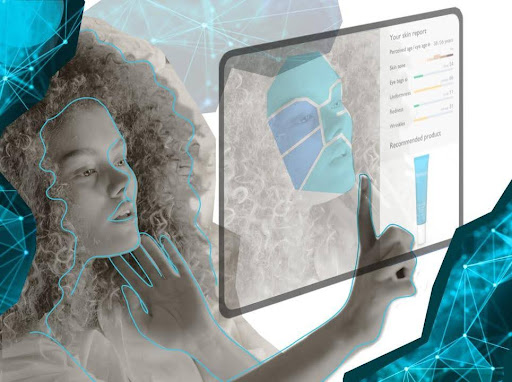
In an era defined by technological innovation, artificial intelligence (AI), data analytics, and machine learning are revolutionizing every aspect of our lives, including the beauty industry. From personalized skincare recommendations to virtual try-on experiences, these cutting-edge technologies are transforming how we discover, interact with, and purchase beauty products. In this article, we’ll explore the impact of AI, data analytics, and machine learning on the future of beauty, uncovering the possibilities and challenges that lie ahead.
1. Personalized Beauty Recommendations
One of the most significant ways AI is shaping the beauty industry is through personalized product recommendations. By analyzing vast amounts of data, including skin type, concerns, and preferences, AI-powered algorithms can suggest tailored skincare routines and makeup products suited to individual needs. This level of personalization enhances the customer experience, leading to higher satisfaction and loyalty.
2. Virtual Try-On Experiences
Virtual try-on experiences powered by AI and augmented reality (AR) technology allow consumers to experiment with different makeup looks and hairstyles virtually. By overlaying digital images onto live video feeds or uploaded selfies, these tools enable users to visualize how products will look on their skin tone and face shape before making a purchase. This immersive and interactive approach to beauty shopping enhances engagement and reduces the need for in-store trials.
3. Skin Analysis and Diagnosis
AI-driven skin analysis tools are revolutionizing the way we assess and treat skin concerns. By analyzing images of the skin, these algorithms can detect issues such as wrinkles, acne, and pigmentation, providing personalized recommendations for skincare products and treatments. This technology not only improves the accuracy of diagnosis but also empowers consumers to take proactive steps towards achieving healthier skin.
4. Product Development and Formulation
Data analytics and machine learning algorithms are also influencing the product development process in the beauty industry. By analyzing consumer preferences, market trends, and ingredient efficacy data, brands can identify emerging opportunities and optimize their formulations for maximum effectiveness. This data-driven approach enables companies to stay ahead of the curve and deliver innovative products that meet evolving consumer demands.
5. Supply Chain Optimization
AI and data analytics are streamlining supply chain operations in the beauty industry, improving efficiency and reducing costs. Predictive analytics algorithms can forecast demand, optimize inventory levels, and minimize wastage, ensuring that products are available when and where they are needed. Additionally, AI-powered systems can detect anomalies and identify potential risks in the supply chain, enabling proactive mitigation strategies to be implemented.
6. Personalized Marketing and Customer Engagement
AI-driven marketing solutions are enabling beauty brands to deliver more personalized and targeted messaging to consumers. By analyzing customer data and behavior, algorithms can segment audiences and tailor marketing campaigns to individual preferences and interests. This personalized approach enhances customer engagement and increases the likelihood of conversion, driving revenue growth for brands.
7. Ethical and Sustainable Practices
AI and data analytics are also being used to promote ethical and sustainable practices within the beauty industry. By tracking and analyzing supply chain data, brands can ensure transparency and traceability, verifying the origin and authenticity of ingredients. Additionally, AI-powered systems can optimize production processes to minimize waste and reduce environmental impact, aligning with consumer preferences for eco-friendly and socially responsible brands
Challenges and Considerations
While AI, data analytics, and machine learning offer tremendous opportunities for innovation in the beauty industry, they also present challenges and considerations. Privacy concerns, data security, and algorithm bias are important issues that must be addressed to ensure responsible and ethical use of these technologies. Additionally, the human touch and expertise of beauty professionals remain essential in delivering personalized and empathetic experiences to consumers.
In conclusion, the convergence of artificial intelligence, data analytics, and machine learning is reshaping the future of the beauty industry, driving innovation, efficiency, and sustainability. By harnessing the power of these technologies, beauty brands can unlock new opportunities for growth and differentiation, while empowering consumers with personalized solutions that enhance their beauty journey. As AI continues to evolve and expand its capabilities, the beauty industry stands poised for a transformative and exciting future.

